第10章 Chapter 3(3)
His father's house was,Miss Browning tells me,literally crammed with books;and,she adds,'it was in this way that Robert became very early familiar with subjects generally unknown to boys.'He read omnivorously,though certainly not without guidance.One of the books he best and earliest loved was 'Quarles'Emblemes',which his father possessed in a seventeenth century edition,and which contains one or two very tentative specimens of his early handwriting.Its quaint,powerful lines and still quainter illustrations combined the marvellous with what he believed to be true;and he seemed specially identified with its world of religious fancies by the fact that the soul in it was always depicted as a child.On its more general grounds his reading was at once largely literary and very historical;and it was in this direction that the paternal influence was most strongly revealed.'Quarles'Emblemes'was only one of the large collection of old books which Mr.Browning possessed;and the young Robert learnt to know each favourite author in the dress as well as the language which carried with it the life of his period.The first edition of 'Robinson Crusoe';the first edition of Milton's works,bought for him by his father;a treatise on astrology published twenty years after the introduction of printing;the original pamphlet 'Killing no Murder'(1559),which Carlyle borrowed for his 'Life of Cromwell';an equally early copy of Bernard Mandeville's 'Bees';very ancient Bibles --are some of the instances which occur to me.Among more modern publications,'Walpole's Letters'were familiar to him in boyhood,as well as the 'Letters of Junius'and all the works of Voltaire.
Ancient poets and poetry also played their necessary part in the mental culture superintended by Robert Browning's father:
we can indeed imagine no case in which they would not have found their way into the boy's life.Latin poets and Greek dramatists came to him in their due time,though his special delight in the Greek language only developed itself later.But his loving,lifelong familiarity with the Elizabethan school,and indeed with the whole range of English poetry,seems to point to a more constant study of our national literature.
Byron was his chief master in those early poetic days.
He never ceased to honour him as the one poet who combined a constructive imagination with the more technical qualities of his art;and the result of this period of aesthetic training was a volume of short poems produced,we are told,when he was only twelve,in which the Byronic influence was predominant.
The young author gave his work the title of 'Incondita',which conveyed a certain idea of deprecation.He was,nevertheless,very anxious to see it in print;and his father and mother,poetry-lovers of the old school,also found in it sufficient merit to justify its publication.No publisher,however,could be found;and we can easily believe that he soon afterwards destroyed the little manu,in some mingled reaction of disappointment and disgust.
But his mother,meanwhile,had shown it to an acquaintance of hers,Miss Flower,who herself admired its contents so much as to make a copy of them for the inspection of her friend,the well-known Unitarian minister,Mr.W.J.Fox.The copy was transmitted to Mr.Browning after Mr.Fox's death by his daughter,Mrs.Bridell-Fox;and this,if no other,was in existence in 1871,when,at his urgent request,that lady also returned to him a fragment of verse contained in a letter from Miss Sarah Flower.Nor was it till much later that a friend,who had earnestly begged for a sight of it,definitely heard of its destruction.
The fragment,which doubtless shared the same fate,was,I am told,a direct imitation of Coleridge's 'Fire,Famine,and Slaughter'.
These poems were not Mr.Browning's first.It would be impossible to believe them such when we remember that he composed verses long before he could write;and a curious proof of the opposite fact has recently appeared.Two letters of the elder Mr.Browning have found their way into the market,and have been bought respectively by Mr.Dykes Campbell and Sir F.Leighton.I give the more important of them.
It was addressed to Mr.Thomas Powell:
Dear Sir,--I hope the enclosed may be acceptable as curiosities.
They were written by Robert when quite a child.I once had nearly a hundred of them.But he has destroyed all that ever came in his way,having a great aversion to the practice of many biographers in recording every trifling incident that falls in their way.
He has not the slightest suspicion that any of his very juvenile performances are in existence.I have several of the originals by me.
They are all extemporaneous productions,nor has any one a single alteration.